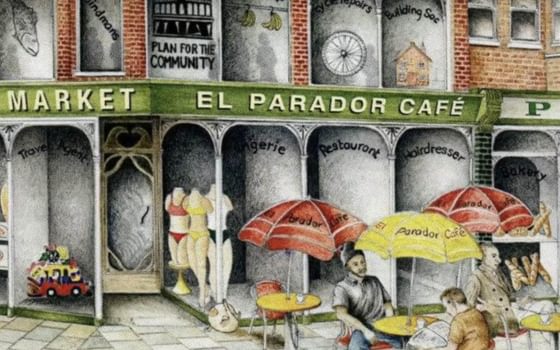East End Trades Guild
Tower Hamlets
Alliance of 300 small businesses and independent traders takes on landlords and big business.
Krissie Nicolson had lived in Hackney for many years when one day she read an interview with Paul Gardener, a small business owner of Gardeners Bags in Spitalfields, about the landlord putting up his rent. The story, which ran on Spitalfields Life, was so powerful, that it mobilised the public to rally around Gardener, eventually succeeding in getting the landlord to reverse his decision.
Nicolson, who had done a masters in community organising in 2010, saw an opportunity to organise the small business owners of Hackney, who were sometimes overlooked. “Business groups usually cater for big businesses. There wasn’t much around for small businesses other than services and access to finance,” Nicolson told Far Nearer.
Since 2010, the East End Trades Guild has evolved into an alliance of 300 small independent businesses and the self employed. Members pay to join, and are expected to uphold the Guild’s values and principles, including inclusivity and reciprocity. In return they join hundreds of other engaged businesses in the fight for affordable workspaces – and a spot on the Guild’s coveted, hand-drawn map of small businesses. In 2018, the Guild launched an Affordable Workspace Manifesto, with support from the New Economics Foundation.
“Our aim is to bring locally owned small independent businesses of all sectors together to speak as one and to take action on their concerns,” Nicolson says.
Tags Community business Building power
Find out more
Further reading
- East End Trades Guild: Krissie Nicolson. Far Nearer, 7/3/17
- Affordable Workspace Manifesto. East End Trades Guild, 2018
Contact details
New rules needed
Policies that can help unleash the potential of this or similar initiatives across the UK.
-
Turn RBS into a network of local banks
New banks would be owned in trust for the public benefit and mandated to lend only within their local area. -
Expand the community and co-operative banking sector
Stakeholder banks can be mandated to serve the public interest or local communities rather than simply to maximise returns. -
Create devolved ‘just transition’ funds
Government should devolve a proportion of its Green New Deal budget to support local just transition plans. -
Create affordable workspaces
Affordable workspaces are essential to the survival of independent businesses. -
Promote community wealth building
Support co-ops to thrive in their localities by anchoring them within place-based industrial and community wealth building strategies.






